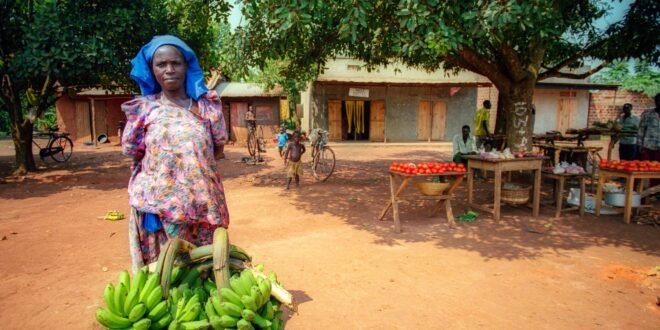Women in Uganda Face Pressure to Prepare Unhealthy Meals
In Uganda, women are increasingly preparing unhealthy meals due to societal expectations and cultural norms. A recent study conducted by Makerere University researchers has revealed that many women cook foods high in sugar and fat not because they prefer them, but out of fear of social sanctions such as divorce or community stigma. These pressures are deeply rooted in traditional beliefs that equate cooking certain types of food with being a good wife or showing care for one’s family.
One of the key findings of the study is that norms like “tea without sugar is mistreatment” and “fried food is a sign of a good wife” create a sense of obligation among women to prepare meals that may be harmful to their health. For men, consuming fatty and fried foods is often associated with social status and respect. However, this behavior comes at a cost. By prioritizing these cultural expectations over nutritional guidelines, women are contributing to the rising prevalence of Type 2 diabetes and other chronic diseases in the country.
The study, published on BMJ Journals on July 15, 2025, was part of a broader evaluation of health interventions. It found that women frequently choose ultra-processed foods—high in sugar and fats—because they are convenient and align with cultural ideals of hospitality. Despite knowing the risks, many women still prepare these meals to gain approval from their families and communities.
The Role of Limited Exercise and Stress
In addition to unhealthy eating habits, the study also highlights how limited physical activity and stress contribute to the risk of Type 2 diabetes. According to the World Health Organization (WHO), nearly one-third of adults worldwide did not meet the recommended levels of physical activity in 2022. This trend has worsened over the years, with physical inactivity increasing by about 5 percentage points between 2010 and 2022.
Physical inactivity is more common among women than men, with 34% of women globally being inactive compared to 29% of men. WHO Director General Dr. Tedros Adhanom Ghebreyesus emphasized the importance of increasing physical activity to reduce the risk of diseases like cancer, heart disease, and to improve mental health and well-being.
Cultural Influences and Health Interventions
The Makerere University study, conducted in Bugiri and Busia—two districts with high rates of Type 2 diabetes—examined the role of cultural norms, family dynamics, and community influences in shaping health behaviors. Researchers noted that preferences for certain staple foods and perceptions of weight are often linked to social status and can perpetuate risky health behaviors.
To address these challenges, the study calls for gender-transformative, culturally sensitive, and community-centered interventions. It suggests that diabetes prevention strategies should go beyond individual awareness campaigns and instead focus on family-centered approaches that take into account cultural drivers and empower women.
Engaging cultural institutions, involving key influencers, and integrating changes in social norms into health promotion programs are seen as critical steps toward reducing the risk of Type 2 diabetes.
Understanding Type 2 Diabetes
Type 2 diabetes occurs when the body becomes resistant to insulin, a hormone that regulates blood sugar levels. Common symptoms include frequent urination, excessive thirst, increased hunger, extreme fatigue, blurry vision, slow healing of cuts or bruises, and tingling or numbness in the hands or feet.
Managing Type 2 diabetes typically involves healthy eating, regular exercise, and, in some cases, medication. Early diagnosis and lifestyle changes can significantly reduce the risk of complications associated with the disease.
The study underscores the urgent need for comprehensive public health strategies that address both the social and biological factors contributing to the rise of chronic diseases in Uganda.
 Info Malang Raya Its All About World News
Info Malang Raya Its All About World News




